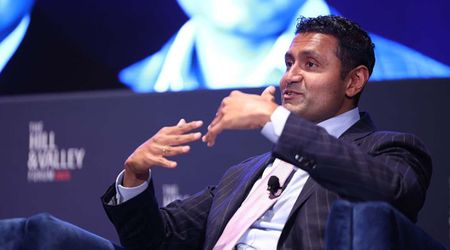Rise of Virtual Influencers to Impact Human Influence on Digital Mediums

In the ever-evolving landscape of social media and digital communication, the emergence of virtual influencers marks a significant shift in the dynamics of online interaction. These influencers, powered by artificial intelligence (AI), blur the lines between reality and simulation, challenging traditional notions of authenticity and personhood in the digital realm.

One of the trailblazers in this domain is Miquela Souza, an Instagram model whose popularity skyrocketed despite her non-existence in the physical world. Alongside her, entities like Naina_avtr and Kyraonig have carved out their digital personas, collaborating with prestigious brands and amassing substantial followings. Their rise underscores the growing influence of AI-generated content and its impact on shaping online discourse.
View this post on Instagram
Virtual influencers thrive primarily on visually-centric platforms like Instagram, leveraging advanced Computer-Generated Imagery (CGI) techniques to craft lifelike avatars imbued with distinct personalities. Unlike conventional chatbots, these entities bridge the gap between humans and machines, engaging with users on a personal level and advocating for various causes. Their seamless integration into the social media landscape blurs the boundaries between human and artificial, prompting users to form genuine connections despite knowing their synthetic origins.
The phenomenon of virtual influencers extends beyond mere novelty; it poses profound implications for brand endorsements and consumer behavior. Brands increasingly view these AI-driven personas as viable marketing assets, capitalizing on their relatability and influence to promote products and services. Moreover, studies suggest that users readily accept virtual influencers, regardless of their synthetic nature, as long as they exhibit emotion-based communicative styles.
View this post on Instagram
However, the rise of virtual influencers prompts introspection regarding the nature of influence and authenticity in online interactions. While these entities lack tangible existence, their impact rivals that of their human counterparts, raising questions about the authenticity of influencer culture as a whole. Yet, paradoxically, users' acceptance of virtual influencers underscores the inherently subjective nature of online connections, where perception often trumps reality.
The implications of virtual influencers extend beyond the realm of marketing, signaling broader shifts in digital media consumption and creator economies. As the barriers to entry for virtual influencer creation diminish, traditional human influencers may face heightened competition and existential threats to their livelihoods. The allure of virtual influencers lies in their cost-effectiveness, compliance with brand messaging, and malleability an attractive proposition for brands seeking to streamline their marketing efforts.
View this post on Instagram
The advent of virtual influencers heralds a new era of human-computer bonding, where artificial entities seamlessly integrate into our digital lives, blurring the boundaries between real and simulated. While the rise of virtual influencers may pose challenges to conventional notions of authenticity and identity, it also offers novel opportunities for brands and creators alike to navigate the ever-evolving landscape of digital media. Whether we embrace this paradigm shift or resist it, the age of virtual influencers signals a profound transformation in the way we perceive and engage with the digital world.





















